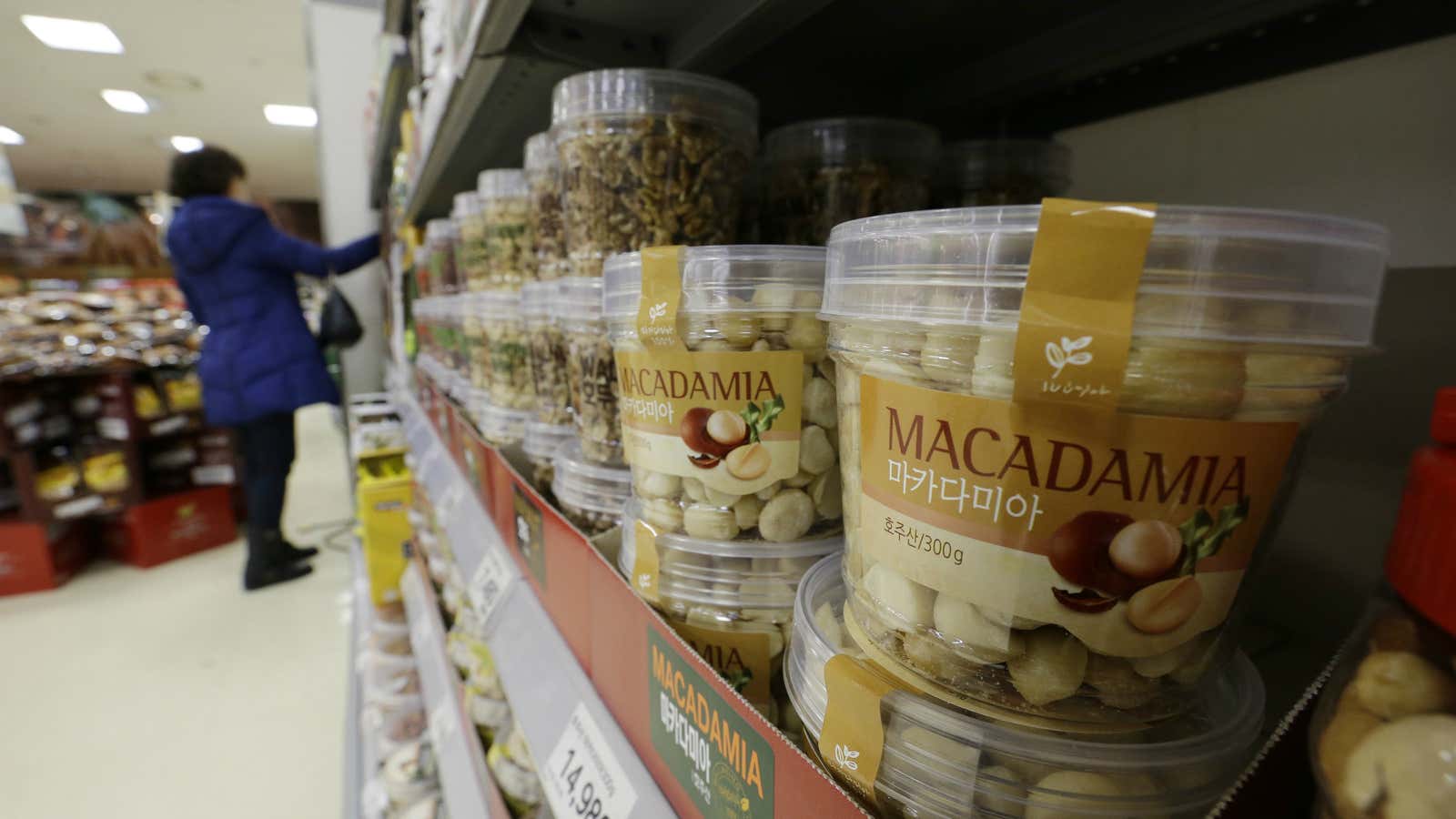Is your dairy-free, non-GMO “milk” made from free-range trees? This one is.
In the wild world of product claims, the fledgling macadamia-nut-milk industry is charging into the US market elbows out, taking pot-shots at the dairy and almond industries along the way. This explains the unabashed claim on Milkadamia’s cartons, which is that the company only sources nuts from so-called “free-range trees.” The Chicago-based company’s nuts are grown from trees in Australia, then shipped to the US for processing.
To be sure, “free-range tree” does not fall within the scientific lexicon used by horticulturalists. It’s nothing more than a marketing ploy to hook consumers enamored by product claims. Milkadamia cartons go on to explain that its milk comes from “trees supporting life, not trees on life support,” meaning they aren’t attached to irrigation systems.
It’s meant to be a “gentle” dig at California almond farmers, Milkadamia CEO Jim Richards tells Quartz. He characterizes these farmers—much to their chagrin—as being dependent on irrigating water from aquifers. The almond industry is, of course, one of Milkadamia’s rivals, as it supplies the nuts for almond milk. Researchers are trying to figure out ways to refill aquifers, which often sit about 45 ft (13.7 m) below ground.
“The only way those trees are kept alive—the only way—is from water that’s being pumped from under the ground to them,” Richards says. “When you take water out of an underground aquifer, it will never fill up again. It’s a national treasure, it shouldn’t be used like that.”
Still, using the term “free-range trees” as a selling point is an audacious move when the vast majority of plant life on Earth could be considered “free-range.” Using Milkadamia’s definition, all the genetically-modified corn growing in Iowa could be marketed as “free-range.” Richards, the CEO of the two-year-old company, acknowledges the term is a tongue-in-cheek “oxymoron.”
Milkadamia also advertises itself as product for a time when “milk is moot,” a shot at the US dairy industry, which for years has experienced a decline in milk consumption. Richards again characterized his claim as a “gentle” nudge at his rival industry.
“Moot means no longer relevant,” he explains. “It’s not bad. It’s not an attack on milk. We thought it was a very slightly humorous way of saying that we’re non-dairy. We wanted to say that non-aggressively.”
If either the almond or the the dairy industry are annoyed by brazen macadamia-milk purveyors, they’d better get used to it. In less than two years Milkadamia has expanded its US footprint to more than 5,000 retail locations and will be sold in Walmart in January, Richards says.




